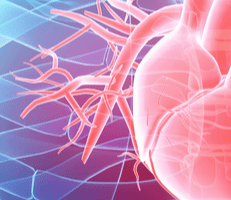High Cholesterol

Phoenix Heart
Cardiologists located in Glendale, Goodyear, Scottsdale, Anthem, Black Canyon City & Avondale, AZ
Having high cholesterol is one of the leading risk factors for developing heart disease. The team at Phoenix Heart is committed to helping you lower your cholesterol and decrease your risk factors for coronary artery disease, stroke, and other serious health problems. For a check of your cholesterol, call or book an appointment online with one of the Phoenix Heart offices in Glendale, Goodyear, Anthem, Buckeye, Laveen, Cottonwood, or Black Canyon City, Arizona.
High Cholesterol Q & A
What is Cholesterol?
Cholesterol is a fatty, waxy element of your body that helps to build cells and produce hormones and vitamin D. It’s naturally produced in the liver and is also found in many foods.
Within normal, healthy limits, cholesterol is an important part of a well-functioning body. When too high, it can build up in the bloodstream, causing blockages in the blood vessels and preventing proper blood flow to your body’s systems.
What are the Types of Cholesterol?
There are two main types of cholesterol, or rather two types of cells that help manage cholesterol in the body. These cells are called lipoproteins, and they manage cholesterol in different ways.
- Low-Density Lipoprotein: Low-density lipoprotein (LDL) is often referred to as “bad cholesterol,” because as it transports cholesterol through the body it can cause buildup in the bloodstream and blood vessels.
- High-Density Lipoprotein: High-density lipoprotein (HDL) is also called “good cholesterol,” as it helps to collect excess cholesterol in the blood and prevent blockages from occurring.
For healthy cholesterol levels in the body, you want a low LDL level and a high HDL level. When you have your cholesterol checked, your results reflect how much of each type of cholesterol you have.
What are Some Complications of High Cholesterol?
The most significant risk factor of high cholesterol is heart disease, specifically coronary artery disease. Coronary artery disease is caused by blockages in the arteries, which causes an interruption in blood flow throughout the body.
High cholesterol can also increase your risk for:
- Stroke
- Liver disease
- Peripheral artery disease
- High blood pressure, or hypertension
- Type II diabetes
Regular checks of your cholesterol levels help to identify your risk factors and enable you to make changes that may help you to prevent these complications.
How Can I Lower My Cholesterol?
To lower your LDL cholesterol and increase your HDL cholesterol, some changes you can make are:
- Maintain a healthy weight
- Stop smoking
- Eat a healthy diet
- Get regular cholesterol checks
- Keep an active lifestyle
If your cholesterol can’t be controlled using these lifestyle changes, you may require cholesterol-lowering drugs.
For a cholesterol check, call Phoenix Heart today or book an appointment online.
Cardiology Services
-
 Cardiovascular Labmore info
Cardiovascular Labmore info -
 Congestive Heart Failuremore info
Congestive Heart Failuremore info -
 Electrophysiologymore info
Electrophysiologymore info -
 Heart Attackmore info
Heart Attackmore info -
 Nuclear Medicinemore info
Nuclear Medicinemore info -
 Clinical Researchmore info
Clinical Researchmore info -
 Structural Heart Defectsmore info
Structural Heart Defectsmore info -
 Ultrasound Testingmore info
Ultrasound Testingmore info -
 Echocardiogrammore info
Echocardiogrammore info -
 Vein Centermore info
Vein Centermore info -
 Women’s Heart Healthmore info
Women’s Heart Healthmore info -
 High Blood Pressure/Hypertensionmore info
High Blood Pressure/Hypertensionmore info -
 High Cholesterolmore info
High Cholesterolmore info -
 Coronary Artery Diseasemore info
Coronary Artery Diseasemore info -
 Stress Testingmore info
Stress Testingmore info -
 Weight Lossmore info
Weight Lossmore info -
 Arrhythmiamore info
Arrhythmiamore info -
 Atrial Fibrillationmore info
Atrial Fibrillationmore info -
 Peripheral Vascular Disease (PVD)more info
Peripheral Vascular Disease (PVD)more info -
 Chest Pain/Anginamore info
Chest Pain/Anginamore info -
Lymphedema & Phlebolymphedemamore info
-
Compression Stockingsmore info
-
Diagnostic Testingmore info
-
Interventional Cardiologymore info
-
Peripheral Arterial Diseasemore info
-
Bradycardiamore info
-
Tachycardiamore info
-
Ventricular Fibrillationmore info
-
Weight Management with Enara Healthmore info

Heart Care
Cardiovascular disease, or heart disease, is the leading cause of death for both men and women in the United States. We treat all ranges of conditions that affect the heart.
Learn More
Vein Care
We diagnose and treat a wide variety of conditions, injuries, and diseases related to the veins in the body.
Learn More
Vascular Care
Our cardiologists take a multidisciplinary approach to vascular care. Our care team provides surgical and non-surgical vascular treatment options to keep you healthy.
Learn More
For Patients
Get the information you need before your appointment, access our online portal, forms, prescription refills and more.
Learn More



















